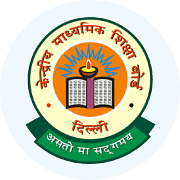CTET & State TET Exam > CTET & State TET Questions > Which one of the following facts does not hol...
Start Learning for Free
Which one of the following facts does not hold true about Gruma-Bhojaka, the village headman in the northern parts of India?
- a)He was often the largest landowner.
- b)His post was hereditary.
- c)The king never used him to collect taxes.
- d)Generally, he had slaves and hired workers to cultivate the land.
Correct answer is option 'C'. Can you explain this answer?
| FREE This question is part of | Download PDF Attempt this Test |
Most Upvoted Answer
Which one of the following facts does not hold true about Gruma-Bhojak...
Gruma-Bhojaka was the village headman in the northern parts of India. He held an important position in the village and had various responsibilities. Let's analyze each option to determine which one does not hold true about him.
a) He was often the largest landowner.
- This statement is generally true for the village headman. As the headman, he would typically own a significant amount of land, making him one of the largest landowners in the village.
b) His post was hereditary.
- This statement is also generally true for the village headman. The position of the headman was often passed down from one generation to another within the same family. It was considered a hereditary post, ensuring continuity and stability in village administration.
c) The king never used him to collect taxes.
- This statement is the one that does not hold true about Gruma-Bhojaka. The village headman played a crucial role in the collection of taxes on behalf of the king or the ruling authority. He would assess and collect taxes from the villagers and ensure that the revenue reached the royal treasury.
d) Generally, he had slaves and hired workers to cultivate the land.
- This statement is true for many village headmen. They would often have slaves or hired workers to cultivate their land. This allowed them to focus on their administrative duties while still maintaining their agricultural interests.
Conclusion:
Based on the analysis, we can conclude that the statement "c) The king never used him to collect taxes" does not hold true about Gruma-Bhojaka. The village headman was indeed used by the king to collect taxes from the villagers.
a) He was often the largest landowner.
- This statement is generally true for the village headman. As the headman, he would typically own a significant amount of land, making him one of the largest landowners in the village.
b) His post was hereditary.
- This statement is also generally true for the village headman. The position of the headman was often passed down from one generation to another within the same family. It was considered a hereditary post, ensuring continuity and stability in village administration.
c) The king never used him to collect taxes.
- This statement is the one that does not hold true about Gruma-Bhojaka. The village headman played a crucial role in the collection of taxes on behalf of the king or the ruling authority. He would assess and collect taxes from the villagers and ensure that the revenue reached the royal treasury.
d) Generally, he had slaves and hired workers to cultivate the land.
- This statement is true for many village headmen. They would often have slaves or hired workers to cultivate their land. This allowed them to focus on their administrative duties while still maintaining their agricultural interests.
Conclusion:
Based on the analysis, we can conclude that the statement "c) The king never used him to collect taxes" does not hold true about Gruma-Bhojaka. The village headman was indeed used by the king to collect taxes from the villagers.
Free Test
FREE
| Start Free Test |
Community Answer
Which one of the following facts does not hold true about Gruma-Bhojak...
'The king never used him to collect taxes' - is the fact that does not hold true about Gruma-Bhojaka, the village headman in the northern parts of India because the king used them to collect the taxes.
Attention CTET & State TET Students!
To make sure you are not studying endlessly, EduRev has designed CTET & State TET study material, with Structured Courses, Videos, & Test Series. Plus get personalized analysis, doubt solving and improvement plans to achieve a great score in CTET & State TET.

|
Explore Courses for CTET & State TET exam
|

|
Which one of the following facts does not hold true about Gruma-Bhojaka, the village headman in the northern parts of India?a)He was often the largest landowner.b)His post was hereditary.c)The king never used him to collect taxes.d)Generally, he had slaves and hired workers to cultivate the land.Correct answer is option 'C'. Can you explain this answer?
Question Description
Which one of the following facts does not hold true about Gruma-Bhojaka, the village headman in the northern parts of India?a)He was often the largest landowner.b)His post was hereditary.c)The king never used him to collect taxes.d)Generally, he had slaves and hired workers to cultivate the land.Correct answer is option 'C'. Can you explain this answer? for CTET & State TET 2024 is part of CTET & State TET preparation. The Question and answers have been prepared according to the CTET & State TET exam syllabus. Information about Which one of the following facts does not hold true about Gruma-Bhojaka, the village headman in the northern parts of India?a)He was often the largest landowner.b)His post was hereditary.c)The king never used him to collect taxes.d)Generally, he had slaves and hired workers to cultivate the land.Correct answer is option 'C'. Can you explain this answer? covers all topics & solutions for CTET & State TET 2024 Exam. Find important definitions, questions, meanings, examples, exercises and tests below for Which one of the following facts does not hold true about Gruma-Bhojaka, the village headman in the northern parts of India?a)He was often the largest landowner.b)His post was hereditary.c)The king never used him to collect taxes.d)Generally, he had slaves and hired workers to cultivate the land.Correct answer is option 'C'. Can you explain this answer?.
Which one of the following facts does not hold true about Gruma-Bhojaka, the village headman in the northern parts of India?a)He was often the largest landowner.b)His post was hereditary.c)The king never used him to collect taxes.d)Generally, he had slaves and hired workers to cultivate the land.Correct answer is option 'C'. Can you explain this answer? for CTET & State TET 2024 is part of CTET & State TET preparation. The Question and answers have been prepared according to the CTET & State TET exam syllabus. Information about Which one of the following facts does not hold true about Gruma-Bhojaka, the village headman in the northern parts of India?a)He was often the largest landowner.b)His post was hereditary.c)The king never used him to collect taxes.d)Generally, he had slaves and hired workers to cultivate the land.Correct answer is option 'C'. Can you explain this answer? covers all topics & solutions for CTET & State TET 2024 Exam. Find important definitions, questions, meanings, examples, exercises and tests below for Which one of the following facts does not hold true about Gruma-Bhojaka, the village headman in the northern parts of India?a)He was often the largest landowner.b)His post was hereditary.c)The king never used him to collect taxes.d)Generally, he had slaves and hired workers to cultivate the land.Correct answer is option 'C'. Can you explain this answer?.
Solutions for Which one of the following facts does not hold true about Gruma-Bhojaka, the village headman in the northern parts of India?a)He was often the largest landowner.b)His post was hereditary.c)The king never used him to collect taxes.d)Generally, he had slaves and hired workers to cultivate the land.Correct answer is option 'C'. Can you explain this answer? in English & in Hindi are available as part of our courses for CTET & State TET.
Download more important topics, notes, lectures and mock test series for CTET & State TET Exam by signing up for free.
Here you can find the meaning of Which one of the following facts does not hold true about Gruma-Bhojaka, the village headman in the northern parts of India?a)He was often the largest landowner.b)His post was hereditary.c)The king never used him to collect taxes.d)Generally, he had slaves and hired workers to cultivate the land.Correct answer is option 'C'. Can you explain this answer? defined & explained in the simplest way possible. Besides giving the explanation of
Which one of the following facts does not hold true about Gruma-Bhojaka, the village headman in the northern parts of India?a)He was often the largest landowner.b)His post was hereditary.c)The king never used him to collect taxes.d)Generally, he had slaves and hired workers to cultivate the land.Correct answer is option 'C'. Can you explain this answer?, a detailed solution for Which one of the following facts does not hold true about Gruma-Bhojaka, the village headman in the northern parts of India?a)He was often the largest landowner.b)His post was hereditary.c)The king never used him to collect taxes.d)Generally, he had slaves and hired workers to cultivate the land.Correct answer is option 'C'. Can you explain this answer? has been provided alongside types of Which one of the following facts does not hold true about Gruma-Bhojaka, the village headman in the northern parts of India?a)He was often the largest landowner.b)His post was hereditary.c)The king never used him to collect taxes.d)Generally, he had slaves and hired workers to cultivate the land.Correct answer is option 'C'. Can you explain this answer? theory, EduRev gives you an
ample number of questions to practice Which one of the following facts does not hold true about Gruma-Bhojaka, the village headman in the northern parts of India?a)He was often the largest landowner.b)His post was hereditary.c)The king never used him to collect taxes.d)Generally, he had slaves and hired workers to cultivate the land.Correct answer is option 'C'. Can you explain this answer? tests, examples and also practice CTET & State TET tests.

|
Explore Courses for CTET & State TET exam
|

|
Suggested Free Tests
Signup for Free!
Signup to see your scores go up within 7 days! Learn & Practice with 1000+ FREE Notes, Videos & Tests.






















